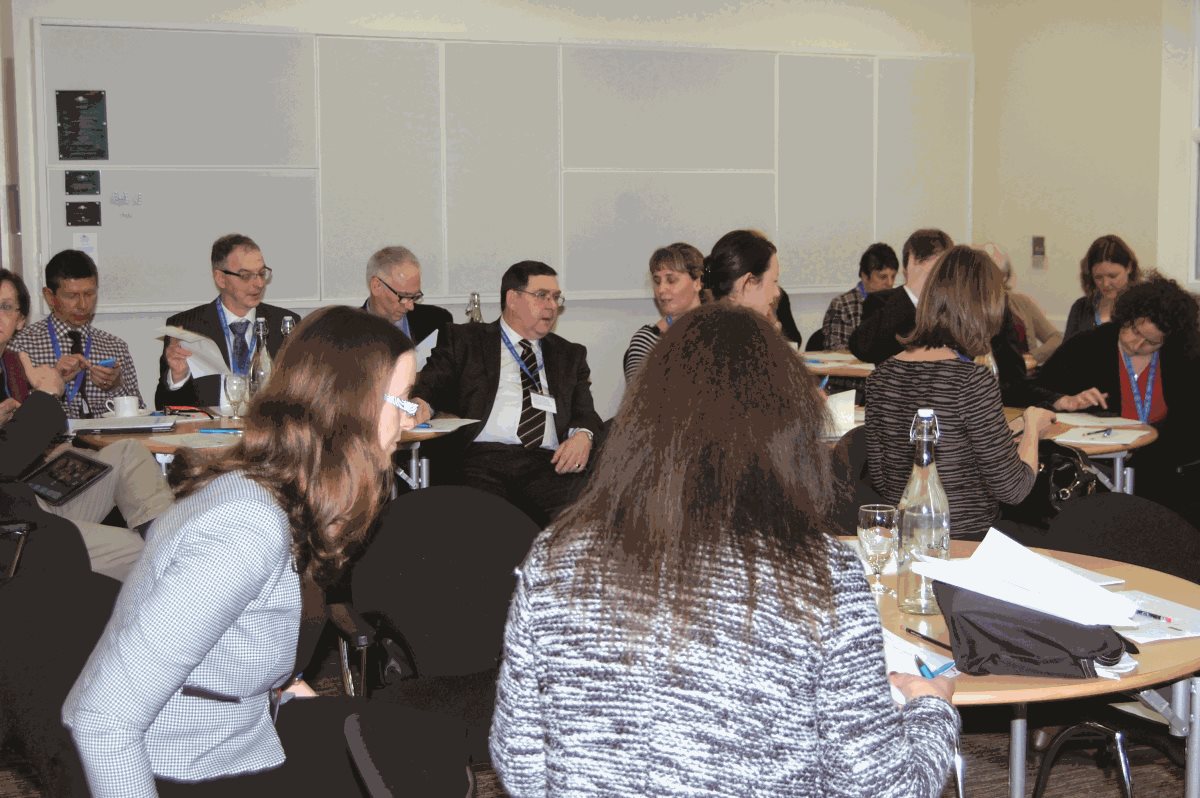Heads of education institutes gathered in London in January to discuss current themes and challenges in radiography education. Here are the highlights.
Health Education Student Funding Changes
Elisabeth Jelfs, director, Council of Deans of Health, spoke about the possible detrimental effects of the 2015 Spending Review, which means that from September 2017 AHP students in England will take out maintenance and tuition loans, like the remainder of the student population, rather than getting a grant from the NHS.
The government’s expectation of the reforms is that this will help to increase health professional student numbers. The government has promised a consultation by the end of February.
Key points
• We need to be up-front about the limits and constraints of increasing student numbers.
• Will there be a deterrent effect on sections of the student population, such as mature students or applicants from low take-up areas of the country?
• It’s going to be important to think about what’s good in the current system and how we can go about preserving that.
• Discussion points for the consultation: Student participation, mature student deterrent effects, student support – gaps in the current bursary system/loan system, placement expenses, bursary gaps which could disincentivise students, system capacity and staffing issues, both clinical and academic.
Radiography Education Future Directions Project: Initial Findings
A research project by the University of Cumbria has involved Charles Sloane, professional lead for medical sciences, talking to radiology managers up and down the country about how graduates can make themselves fit to work in the modern NHS.
Key points
• Many managers feel that graduates don’t have the competence in some aspects of radiography.
• APs and extended practice will and should become more prevalent.
• HEIs are currently focused on producing students with one competence – plain radiography – should this change?
• Managers thought some graduates weren’t motivated to push their career forward.
The Health Education England Reducing Preregistration Attrition and Improving Retention Project
Attrition among the student population and newly qualified radiographers was top of the agenda this year.
Jan Zietara, head of operational Delivery, Health Education England (South), is leading a project to reduce current attrition rates by 50% over the next couple of years.
Key points
• We are losing a lot of first year students – why?
• If you are losing students at a high rate, this will have a significant impact on the workforce as a whole.
• Let’s identify best practice, and promote and share those elements that help retain our students.
• If students do not feel valued, they will either absorb and perpetuate the negative culture or just leave.
Ultrasound Education, Now and in the Future
Gill Dolbear, MSc Programme Director, Canterbury Christ Church University, discussed the potential staff shortage crisis in ultrasound and the need for a much more flexible approach to sonographer education and training.
Key points
• How to deliver a sustainable high quality ultrasound education system which impacts positively on patient care.
• Consider ways in which service providers can deliver ultrasound effectively.
• Sonographer numbers must be increased.
• Demand must decrease by using stricter guidelines to cut unnecessary referrals.
The College of Radiographers’ Practice Educator Accreditation Scheme Refresh
Louise Coleman, professional officer for education and accreditation at SCoR, explained to delegates the thinking behind the accreditation scheme refresh initiative.
Key points
• Re-accreditation is a good thing.
• Why refresh? The current system is now ten years old and needs some changes.
• Are universities still engaging with the accreditation system?
• Important to have a consistency across all standards and leaning outcomes.
Discussion Session: Meeting the challenges in service delivery over the next ten years
SCoR CEO Richard Evans introduced the final session of the day which was a lively discussion about service delivery over the coming decade.
Neil Mesher, managing director UK and Ireland, Philips Healthcare; Peter Hogg, professor of radiography and associate head of research, University of Salford and Gill Holroyd, Radiology Manager, St Helens and Knowsley Teaching Hospitals NHS Trust, each gave their opinions from an industry, education and service delivery perspective.
Key points
• Neil Mesher: Digital is a huge opportunity and industry has a role to play: We have the technology – let’s create a guided runway to bring it to the NHS.
• Peter Hogg: More radiography education centres need to become centres of excellence in research.
• Gill Holroyd: Prepare students properly for working in the NHS.
